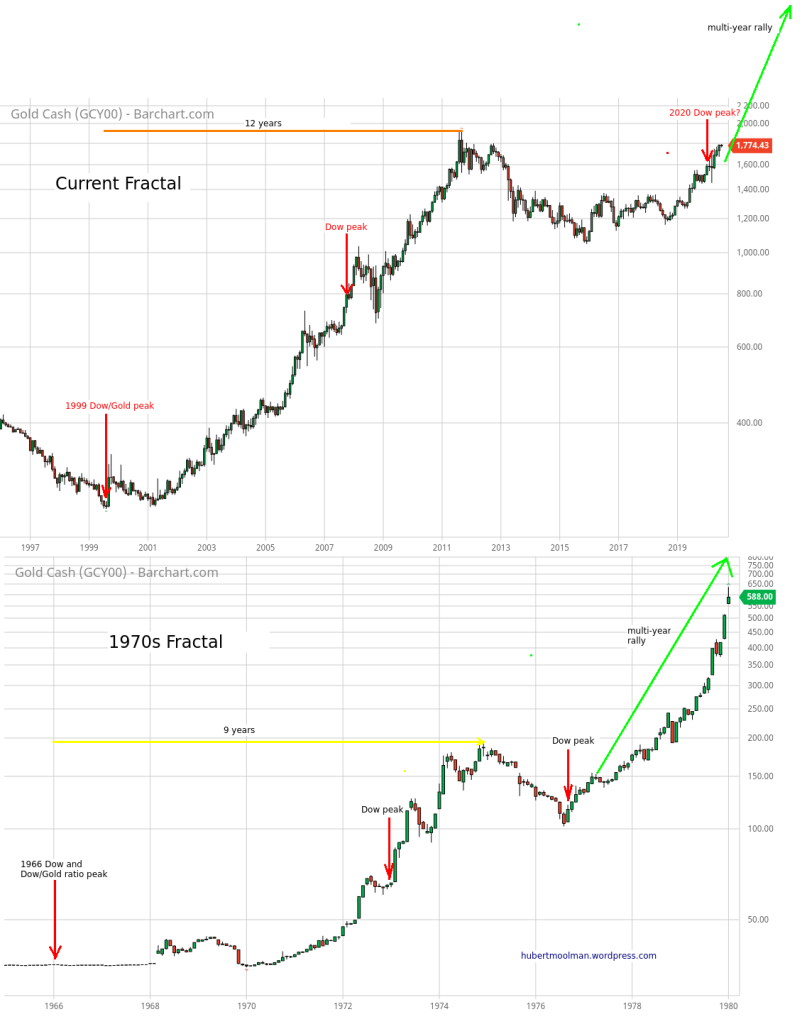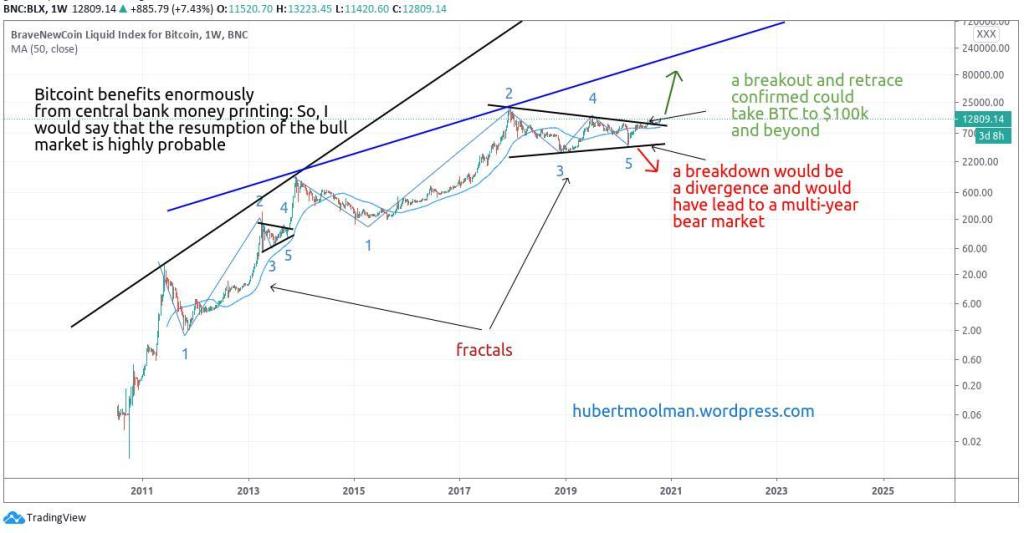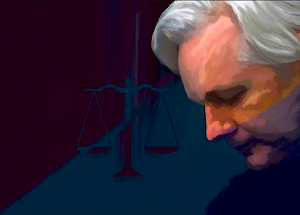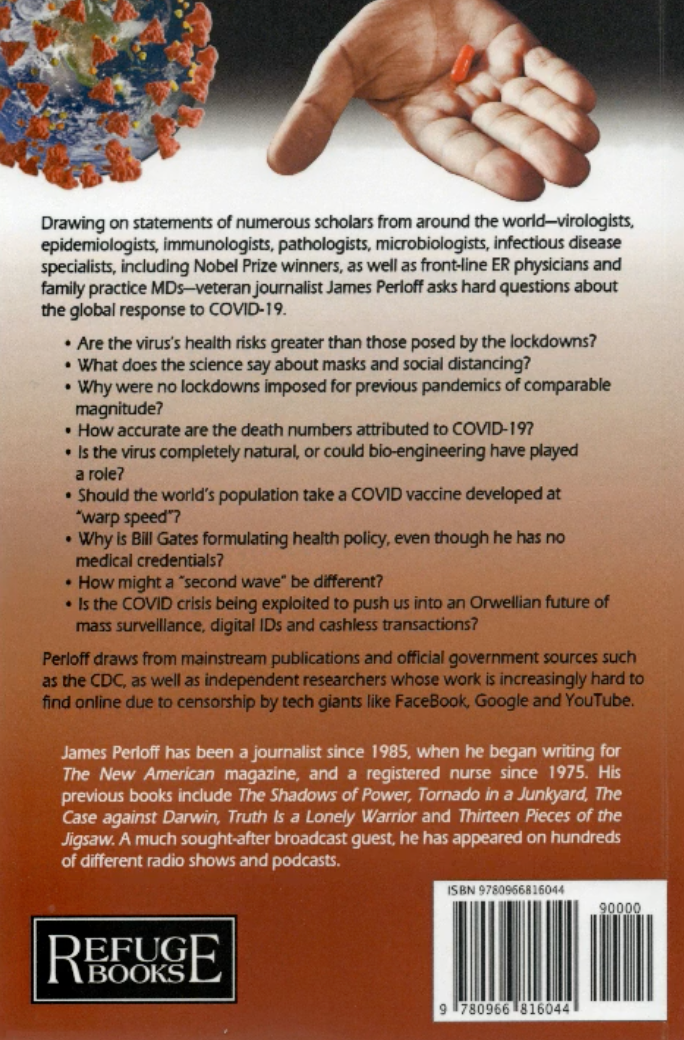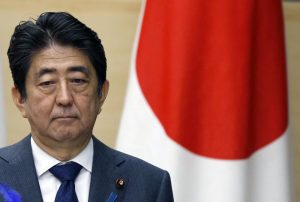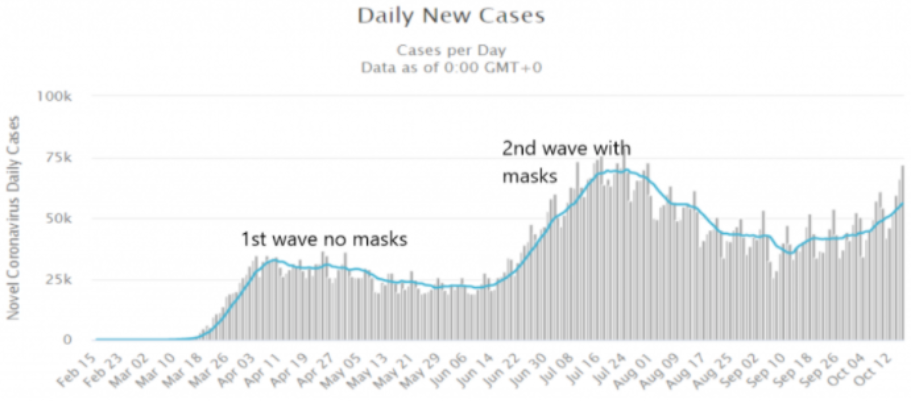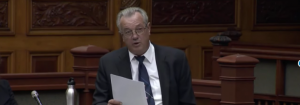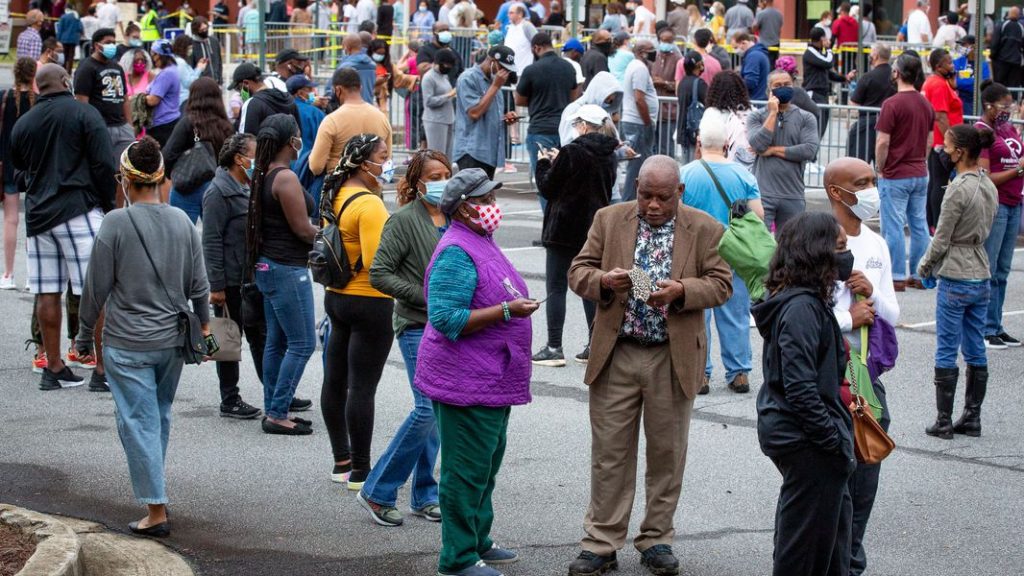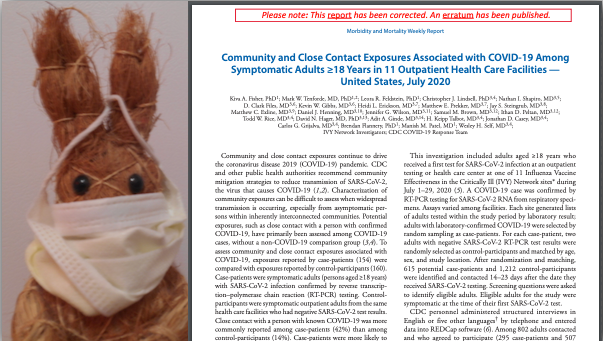Coronavirus: Killer Virus or Common Flu
October 24th, 2020 by Michael Welch
This is part one of a special series devoted to the global pandemic that has coordinated an unprecedented attack on lives and civil liberties everywhere. In this chapter, we have two guests concluding that the threat is not nearly catastrophic as to demand lock-downs and masks.
The first guest is Sucharit Bhakdi. This renowned expert in microbiology along with Karina Reiss wrote a book – Corona: False Alarm? Facts and Figures. He breaks down how the facts he chronicles show how mightily deceived the public has been.
Our next guest is Mark Crispin Miller. A noted academic from New York, he took a particular interest in the mask question used to contain the spread of the virus. He analyzes the situation in an article that he is in the process of writing. He joins us to share his thoughts about masking, and the various methods used to further this remedy and other aspects of the COVID situation.
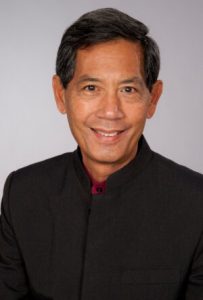
Sucharit Bhakdi, MD is a physician and a post-doctoral researcher. He was named chair of Medical Microbiology at the University of Mainz in 1990, where he remained until his retirement in 2012. He has published over three hundred articles in the fields of immunology, bacteriology, virology, and parasitology, for which he has received numerous awards and the Order of Merit of Rhineland-Palatinate. He is a specialist in microbiology and one of the most cited research scientists in German history. His book, co-authored by Karina Reiss, is Corona: False Alarm? Facts and Figures.
It is available now in the English language.
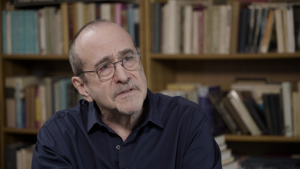 Mark Crispin Miller is a professor of media, culture and communication at New York University, and author of numerous articles on media censorship and election fraud. He is also authoring a major article which is focused on the widespread lies about the safety of the masks we put on to protect us from the threat of COVID 19.
Mark Crispin Miller is a professor of media, culture and communication at New York University, and author of numerous articles on media censorship and election fraud. He is also authoring a major article which is focused on the widespread lies about the safety of the masks we put on to protect us from the threat of COVID 19.
Transcript of Sucharit Bhakdi in Conversation with Global Research News Hour host Michael Welch.
Global Research: Sucharit Bhakdi.
Sucharit Bhakdi, MD: If you look at the statistics of how many percent of infected, in terms of the coronavirus, I would ask the audience whether they had any inkling how many percent died. Was it 40 percent? 20 percent? 10 percent? 5 percent? Make a cross when you think you’ve got the answer. I tell you, it was way, way under 1 percent. Meaning that even without any antibodies, we didn’t have any antibodies, therefore they got the infection with this new, so called new coronavirus that was supposedly deadly and dangerous.
Anyone below the age of 70 even with pre-existing illnesses, the chances of dying was less than 1 percent. And if you have no pre-existing illness, the chances of dying of this COVID-19 was less than 0.1 percent meaning that 99.9 percent would not die because of course, we have modern medicine today. We have excellent possibilities of treating these patients. We are not of the age 1918 where there were no antibiotics, no intensive care medicine so you can’t go around comparing this sort of thing. And if you do, you may be making a big mistake.
GR: Today, from the onset of the virus, 200,000 people in the United States died from the virus. So should these numbers not spark an outrage?
SB: Well you see the whole problem about this virus is that the definition of virus, death, corona, victim” – entirely unscientific and violated all the basic rules of infectious disease. If you had a positive test for this virus, a lab test mind you, which is a PCR test, this is a test where you…The gene or gene fragments of the virus are multiplied so that it’s like putting a loop on what you’re trying to look at to see if the virus is there or not. This test was never intended for diagnostic use. This test was created for laboratory use and there was no mention at all that you could use this test to diagnose an infection and in fact this test does not diagnose an infection.
If you have a positive test it does not mean that you have an active infection. It does not mean that the infection made you ill. And it certainly does not equate with, if you die of this, that the infection killed you. Because this is something that caused the whole wave of misunderstanding to go off all over the world. If anyone tested positive for this virus and jumped off a cliff, then it wasn’t suicide anymore, the virus killed him. All right? I mean, it’s so ridiculous and this is what has been happening and what is happening, even today, even in the US. The virus does no more and no less than any other coronavirus that would have done a year ago or two years ago. Except that last year and the year before, no one would have thought about looking for a coronavirus because these viruses are not important enough to get diagnosed.
If you die of a heart attack, you die of a heart attack, and for that virus there, or a flu virus, or any other virus, it’s immaterial. It doesn’t really matter, and it shouldn’t matter, because if you do this sort of thing you are forcing upon others a false diagnosis. And making the correct diagnosis at death is so important for science and medicine, and you can see, after six months, how much self destruction has already taken place, how many existence are ruined, how many, you know, people have died because they haven’t been treated properly because hospitals have been closed to them. My god, now people in Europe are wearing masks, children are forced to wear masks in school, they’re going crazy, all these sort of thing, for what? Just because people are afraid. But if you look at the number of deaths, you see that if you’re under 70 it’s very, very soft. I’m not being [inaudible] it’s almost difficult to die.
The people who are dying are those whose lives are coming to an end with pre-existing illnesses, and it is correct these people are at risk, but they are at risk for the flu, they’re at risk for pneumococcal, they’re at risk for any agent that happens to hit them. So what one has to do is to protect those people specifically. In the nursing home, in the… People of old age are being taken care of. But you don’t go around doing what governments are doing now, putting masks on people who are not infected, prohibiting them to make a living. You know this is crazy.
GR: Could you talk about the lockdowns that were introduced, because there are some countries that went to extremes and others that did not. Could you maybe point to a few scenarios that show that the lock down…Lockdowns, I mean, on the one hand, maybe you’re protecting people from the virus, on the other hand there are a lot of, you know –
SB: Collateral damage
GR: —collateral damage that could be committed by the lock down, so could you just point to an example that shows that the lockdowns that are triggered is not really making the, doing it, making a positive difference?
SB: Well, the pure evidence in retrospect is that the lockdowns never did any good…and… because they came too late anyway. When the epidemics were already going down, any effect that you thought you might see was there anyway and of course you… Prime example is Sweden which didn’t do the lockdown, as we all know, and without the lockdown Sweden has not been doing worse than France, Italy, the U.S. And, you know, looking at this there’s no question whatsoever that the lockdowns have done nothing but damage. Damage. And all these restrictions that have been continued in Germany, in Switzerland, in France, Spain, whereby in Scandinavia. There is no mask there. They don’t have to wear masks, nothing happens to them either. I mean, it is as clear as day and we can’t understand that people just don’t stand up and say no mask anymore.
GR: Dr Bhakdi, you mentioned the masks, could you point to examples of how these masks were not only ineffective but could even be harmful to those who wore it.
SB: Well, it is well known that wearing masks causes so many psychological damage, harm to children in schools. You know they go really crazy and we have so many examples of children who hate these masks. The moment out they’re out of school they tear them to bits, and they start saying and they scream, “I don’t want to go to school anymore. I hate these masks!”
Masks are also known to increase the concentration of CO2, you know, that you breathe in and out because CO2 does accumulate in the mask. And this is very bad for elderly people who have lung problems…people who… I can tell you openly that my mother-in-law has lung cancer, and she’s an old lady. She’s in terminal stage lung cancer, she was forced to wear a mask when she went to buy milk and bread in the supermarket, and she collapsed in the supermarket and almost had to be taken to a hospital, but then she said, “I will not go to the hospital because if I go to the hospital I will never see my grandson again, and I will also probably never see my children. And if you try to take me to the hospital, I have a plastic bag that I’m going to put over my head.” She did.
And so I’m rather emotional about this. I myself, I can tell you cannot wear a mask because my blood pressure is on the border line. My blood pressure is about 135 to 140, okay? When I put in a mask within 10 to 15 minutes my blood pressure is 145/150 which shortens my life. Now there are millions of you in America, there are millions of people in Germany, in Europe, who are in the same position as me, and when they wear these damn masks, their blood pressure goes above the critical limit and their lives are being shortened. Not by years, but by days and maybe months. I don’t know how much, but I refuse to wear a mask. These are just two examples, but there’s so many others, there are people who get frantic when they put on masks, they get psychic, you know, break downs. And so it’s absolutely unethical that the politicians are forcing their people…They’re dehumanizing them all right, I’m using a very strong word, but it’s true.
GR: Could you maybe just talk about the role of other scientists because I know that there’s a fairly high number of people that are refusing to go along with this, something in the order of the hundreds, but there’s still some scientists who stick to that…you know, the idea that this is something that we should be taking precautions against it and so on. Could you maybe elaborate a little bit on what would guide them to go along with the normal course of action.
SB: Well, we’re all so perplexed, we can’t really understand that our colleagues don’t see through this. We have colleagues who are absolutely terrified of the virus despite the fact that after six months, what I’ve been telling you is… anyone can look up these numbers in the register. I mean it’s so easy, just look at the numbers and you see that everything I said is true. And despite this, they still refuse to stop being afraid and stop inciting fear in their patients and all their friends.
But there’s a real rift now in the medical community. Ever more physicians and people at the front who are seeing patients see that it is not true that this virus is going rampant. We have hardly any patients in the ICUs in Germany with COVID-19. Hardly any. We have hardly any deaths. You can count them on one hand every day. No, we have 2500 deaths a day in Germany and we have maybe five so-called COVID-19 deaths because they are dying with or because of the virus. So, in fact the COVID-19 is one of the most seldom causes of death in Germany at the moment.
To our great delight, it was yesterday, I think, that one thousand four hundred Belgium doctors signed and opened their voices, their opinion, that they said that this whole thing is a bogey. That SARS-COVID-2 is not the killer virus that people have been saying it is. And yet, just yesterday I think, Boris Johnson tightened the measures, and the Bavarian government are thinking of getting soldiers in to control people. It’s incredible, they want to mobilize the army. Oh my god, I mean where are we going? I hope that America doesn’t go this way, but sometimes when I see what the Americans are doing, I start to get my doubts.
We’re in Switzerland right now, I’m trying to talk to the Swiss because the Swiss are also behaving very, very childishly, extremely unSwiss. This was, used to be, the courageous independent people who showed the world the way to go. America used to be one of those too, but no. No way.
GR: That was Dr Sucharit Bhakdi, microbiology specialist and author on the threat of COVID-19 being exaggerated. Sucharit Bhakdi’s book, Corona, False Alarm? published by Chelsea Green Publishing is now available in the English language. Go to the site chelseagreen.com to order a copy or order from your local bookstore.
———————————-
Mark Crispin Miller: Well, over the summer, in fact since this crisis began, and once I came over, I got over my own panic over the coronavirus…I mean, I lost a friend to it and nearly lost another. You know, whatever exactly it is. And I’m seventy, I have Lyme disease so I was duly cautious and kind of on the fence about its seriousness, but as time wore on, I became more and more struck by a significant chinks in the official narrative.
I mean, going all the way back to the zoonotic origin theory that it had leapt from a bat to human, you know it comes right out of the end of the movie Contagion. I’m a student of propaganda, that’s probably my major intellectual interest nowadays and has been for some time. So I realized that this was, we’re living in the midst of, and in a world devastated by a propaganda drive of unprecedented scope and sophistication. And as the mask mandates were imposed and became all the more aggressive, I was increasingly struck by this, in particular.
It started with…what peaked my interest in the beginning was the fact that governor Greg Abbott of Texas who had been a staunch proponent of reopening and had even been invited to the oval office by Donald Trump to get the presidential salute for his position. Suddenly, I think in June, abruptly pivoted, and was now mandating masks in Texas. His pivot is very similar to the one by the CDC and Dr Fauci and the WHO, all three of which were whom had basically articulated the scientific consensus on the usefulness of masks against respiratory viruses. And all said very publicly that healthy people shouldn’t wear them. Fauci was on 60 minutes saying this, that they may make you feel a sense of security, but they’re not really that effective.
Then they all switched, they all shifted. And governor Abbot shifted, and that was a significant moment in the politicization of this issue because it was reported by The New York Times and others as a kind of come-to-Jesus moment, that Abbott had seen the light and understood that indeed the United States should have been following China’s example all along, and that was kind of the subtext of this because the World Health Organization has always strongly championed China’s draconian approach to this and hailed New Zealand for following China’s example.
So then other southern governors began to fall into line and Sean Hannity of Fox News did a TV spot or PSA urging people to wear masks. It was coming at us from every direction as winning propaganda always does. It uses every available medium, every possible stimulus to move large numbers of people to some thought or action and it was happening here. So that we had Tom Hanks, you know, a kind of reliable, arguably CIA-connected movie star saying, “I don’t trust anybody who doesn’t wear a mask.” You had Banksy, the radical street artist doing works of art about the necessity of masking. It was really everywhere we looked, everything we read, everything we saw, masks along the highway, “Wearing is Caring.”
So I was very struck by the summary published in April by Denis Rancourt, a fellow Canadian. You know, deftly and expertly summarizing the findings of seven randomized controlled tests of mask wearing, in hospital settings, from the past 10 or 15 years and they’re all in agreement, and it’s really very simple, that the variants of these respiratory viruses are simply too small for paper or cloth masks to prevent their transmission. One doctor, Dr Simone Gold, in LA, has used the metaphor that…trying to protect yourself from this virus with a face mask is like trying to use a chain link fence to keep out a mosquito. It’s a very apt analogy. It’s just as ridiculous. And the N.95 masks which are harder to penetrate are somewhat more effective but only as long as they fit your face very, very tightly, and with use the fit loosens and that opens up a pathway for the virus to enter.
Now let me pause and note something that nobody thinks about. What is it that health care workers in covid wards have used to protect themselves from infection? Well, they wear masks and respirators and goggles and face shields, and gloves and a gown and booties. That’s the full regalia. You know I spoke to nurses about this. That’s pretty formidable protection against a highly infectious virus in a hospital setting.
So the idea that, first of all, that that’s in any way comparable to what we have to do out in the streets in the open air when we’re healthy, that’s ridiculous because this is.. life is not a covid ward. And secondly, the idea that one of these masks by itself can offer any protection against the virus theoretically passed along by a passer-by on the sidewalk, which doesn’t happen either – these are completely irrational notions. And the more deeply I dug, the more stuff I found, rigorous studies, there’s one in the British medical journal about cloth masks in particular which warns against their use…I think it’s from 2015, it warns against the use of cloth mask by health care workers because these are basically bacteria traps and are dangerous.
Global Research: There has been a major study published by Texas A&M University highlighting how masks were by and large beneficial in protecting from covid. Professor Miller took a look at this and discovered several prominent voices calling for a retraction.
MCM: The one you mentioned is the one most often cited. It was published I think in June in proceedings of the National Academy of Science by a team in Texas A&M University and it got all kinds of press, you know, the media was headlining this and so on. Well, as I took a close look at this, and let me add Michael, I don’t tend to be a scientist myself I mean, I … my…doctorate is in English, and I’ve become a kind of expert in propaganda study and media ownership and things like that, and I’ve learned how to consult those with the appropriate expertise to judge these things. I went and I consulted the scientific reviews of that article. I went to the scientific media center in Britain, this is a control center and there’s a whole number of a lot…a big number of responses to this article, and it’s very damning. They pointed out the data was unreliable, the methodology was faulty, and researchers at Johns Hopkins did the same thing. The article was a fraud. Well they didn’t retract it.
This then prompts a closer look at Texas A&M University. What’s this say about that? Well it turns out it has extremely lucrative contracts with, I think, Pfizer and another pharmaceutical company, they’re in business with them, okay? So this is not a disinterested institution. This is an institution with an interest in keeping, [inaudible] clear for the vaccine or vaccines that are coming at us, see?
Anyone asks protract the error to maintain the actual lockdown…even things might nominally loosened up.
It is related to the scandalous campaign to discredit hydroxychloroquine, which had been proven overwhelming to be extremely successful in treating this disease. This has been affirmed in numerous studies worldwide and in countless clinical practices [inaudible] in Houston. And the local TV station, where they actually did a report on this hospital success rate in treating covid19. They had not lost a single patient. [inaudible] steroid.. cocktail that they use. There are hospitals in Florida that have used it with a perfect rate of success. And here they are telling us that it’s not effective.
GR: Mainstream media have not been doing the job of reviewing the efficacy of masks, among other problems with the covid story. I asked Miller about the press being held hostage by not only corporations, but conglomerates, and what role big pharma could be playing in this.
MCM: You raised a really good and complicated question. I mean first of all the fact that the media is largely concentrated and in the hands or within the tentacles of I think five multinational corporations is already a dangerous development that I.. I’ve been sounding the alarm about since the nineties, when it was accelerating, and as we approached the Telecommunications Act of 1996 which just made everything much, much worse. So that’s…definitely, that lays the groundwork for propaganda across media that are all owned by the same corporation, and all five of them are very closely involved with each other, and they all are connected to the CIA and the National Security State and their advertisers. Paramount among whom is big pharma.
Then there’s the Gates Foundation. There’s a superb article that was in the Columbia Journalism Review [inaudible] media peace keepers, and it gets into his having so far donated around $250 million to media outlets of all kinds, you know NBC News, The Atlantic, NPR, indirectly The New York Times. So that they are all functioning as part of the Mighty Wurlitzer that serves his and Big Pharma interests. So this is a, you know, the classic example of the kind of corruption that has bedeviled the commercial press from the beginning. What has now become, you know, a major threat to public health and the survival of humanity, I think. Because it’s so concentrated. There is no competition within it and NPR, which is supposed to be public broadcasting, is among the worst and so is PBS.
But Gates has also given to the BBC you know. He’s been very generous with media outlets abroad so that it’s difficult to, you know, find genuinely independent media and this extends to medical journals, you know, for the reasons I alluded to in talking about Texas A&M, that university scientists and medical journals are you know, basically in the pocket of the CDC which is itself.. .the Center for Disease Control is not acting in the public interest, it’s a deeply corrupt organization, as is the World Health Organization. And yet our media, naturally, being complicit and being owned, always piously invokes them as if they were, you know, ordained by God to tell us the truth about matters of public health. The opposite is true. The same is the case with Dr Fauci. He’s an extremely corrupt person with a very destructive record in public health. But with the media running interference for him and those agencies, it’s very hard to get at those truths and it’s especially difficult with the most educated people, I have found.
GR: I’d like to then ask you, I mean you’ve been outspoken in this in a number of different areas and I’m wondering about the backlash about, you know, personally, I mean, could you share with our listeners examples of how you’ve been treated for speaking so forthrightly about masking, a parallel of peril to civil liberties.
MCM: Well you know I.. I.. was…I’ve been written off as a conspiracy theorist since I wrote my book on the theft of the 2004 election. It’s called, Fooled Again. It came out in 2005 from a major publisher, who, like myself, was really kind of staggered by the blackout on the book when it appeared. And I was especially staggered by, not a blackout by, but a slander by the left media, many outlets for which I’d written, pieces by people I was friends with, who actually called the book conspiracy theory, and me a conspiracy theorist and it’s not a work of theory, it’s all documented. That was the… that was the meme that was used to shoot me down from the so called left, okay?
I’ve been tagged as a conspiracy theorist. I had been frequently invited on NPR to speak on various aspects of media. I was now persona non grata. I had written a number of opeds for the New York Times, I think 4 or 5. And now I was a pariah, and you know, so my reputation took a public hit. Lately, as I have been focusing on the covid crisis and the disinformation over it, and the disastrousness on the approach to it, through lockdowns and so on, I’ve been specifically targeted at NYU where I teach. A few months after I started doing these things, my department chair sent me four what do you call…negative student reviews from a course I taught on propaganda the previous fall, this is months later. Four single sentences, very, very damning, claiming that I had harangued them in class, and that I did nothing but flawed conspiracy theory and so on. And he said none of these have come from any student evaluations. And he wouldn’t tell me who had given them to him. And he urged me to, you know, straighten up, clean up my act, change my course descriptions, I guess to say, “You should be forewarned that I’m insane and I will be flogging insane theories in the class,” something like that.
So my response to this was to gather together a couple of dozen glowing emails from students, in that class and others, graduates and undergraduates, thanking me for opening their eyes, expressing gratitude for the opportunity to learn how to study these things critically, right? And I sent them to him, and I said, “This is the real consensus. You know, I don’t know where you got that quartet of put downs, but I’m not even convinced they’re authentic.” So that went away.
Now, just this week what’s happened is that a student in my current propaganda course who had come to the class late, about a week-and-a-half into the class, missed the opening week where we talk about all of these general issues, you know, the difficulty of being truly skeptical, the challenge of being genuinely skeptical, and the necessity to be prepared to move out of your comfort zone when you study propaganda, because often you discover that things you have believed – and this has happened me repeatedly in my life, happened to everyone who.. who’s… thoughtful. You come to see that something you believe to be true is not true. It’s the result of very, very sophisticated propaganda. She missed those classes.
So when she came, we were talking, I mean, in such classes I always focus on ongoing propaganda drives, because this is not an academic subject. This is not something you talk about the Nazis and the Bolsheviks only, or you talk only about World War One when modern propaganda began. If you approach it that way, you’re basically doing propaganda because you’re implying that we don’t do it, you know. The North Koreans do it, the Chinese do it, we don’t do it. Well in fact, the United States and Britain invented it, they invented political propaganda. They invented commercial propaganda as it’s been used ever since.
So, my view is that, you know, that you study its history and then you move directly to propaganda drives that are now on going, you have the students do the investigation, you know. I mean, I tell them things that startle them, always saying pointedly do not believe a single word I say, okay? Don’t take my word for anything! I could be wrong, you know, I could be right, it’s irrelevant. I’m not making proclamations of the truth here. I’m setting an example of a kind of critical investigation you have to carry out yourselves. So if something I say strikes you, you are obliged to look into it, yourself. Okay? So, naturally, since I’m forced to teach online, their lives have been completely upended, their socializing is under, you know, police surveillance, and the university is punishing students for having small gatherings in their own apartments, okay? Since we’re living in… in the heart of an unprecedented propaganda maelstrom, how can we not talk about it in class?
So I brought up the mask thing, I mentioned it. I mentioned the scientific studies. I recommended them. I sent them links. And this one student, I mean, who never said a word about any of this during a class discussion but sat there in what I recall now is a kind of stony silence, just on Tuesday started tweeting really hostile statements about my course and demanding that NYU fire me, okay? That I be fired for putting everybody at risk, for flogging dangerous disinformation. She refers contemptuously to the links I sent because, you know, this is very revealing, because I don’t run across many young people like this, but certainly older people, you know, certainly my peers and younger people in their 30s, 40s, 50s who’ve been steeped in The New York Times and so on. They have a tendency to simply shut down in the face of counter evidence. They sometimes become abusive. You know, there’s something about the fear of death that does this.
GR: In the minutes we had left I asked Mark Crispin Miller to expand on the issue of what informed citizens could do to reverse the direction of a massive fraud carried out at their expense.
MCM: Yeah. Well I’m in New York, which is one of the most dystopian cities around I’m afraid. It is unrecognizable to me as New York City. I am very heartened by resistance movements, particularly in Europe. I thought that the turnout in Germany was extraordinary and very, very inspiring, and that Bobby Kennedy Junior’s remarks were right on target, that we are witnessing the rollout of a totalitarian movement, the likes of which we have never seen anywhere, this is global now. And we’ve got all these liberals and progressives screaming about Trump as a fascist, okay. We can get into that whole subject, but to point to Trump as a fascist threat when we’re being faced with mandatory vaccination, immunity passports, we’re having our temperatures taken remotely, our movements are being tracked on cellphones, our socializing and gathering has been forbidden and is sometimes punished. If people can’t see that that’s totalitarianism, then they have been, they have their eyes wide shut. So what’s the solution?
The solution is for people to… those who’ve looked into this to spread the word, you know, however you can do it. It’s what I try to do in class, it’s what I’m doing with you, it’s what you guys do at Global Research. This means, increasingly, that we have to find alternatives to Facebook and Twitter and YouTube and people are finding them. I mean people have to resist, they have to say no. And not look at this in a politicized way, it has nothing to do with Trump or you know, whatever, I mean that… that’s all irrelevant. What matters is the truth, what matters is free and open discussion. That a student of mine would go on Twitter and demand I be fired for sharing certain kind of information and that the university would apparently back her up! I mean, my chairman sent her a reassuring tweet that they would make this a priority, which I found staggering, okay? The good news is that the reaction on Twitter has been overwhelmingly positive you know in… I’m… I don’t want to say in my favor, but in favor of free and frank discussion without having to fear the threat of unemployment or punishment. It is now astonishingly the left, it is more totalitarian, more pro-war, more pro-censorship, more pro-bio security than any other part –constituency.
We need to tell the truth, as George Orwell said, “In a time of universal deceit telling the truth is a revolutionary act,” and that is unfortunately true. That’s the truth today, and therefore we have to heed his advice, because I think his work and the work of other authors who understood the dangers of dystopian surveillance and control, you know, including E.M Forster and Aldous Huxley and others. Their relevance to this crisis is actually far greater than the work of Karl Marx, because this isn’t just about capitalism. This is about a global elite heading in the direction of a kind of neo feudalism where they will own most of the land, control the food supply, where they are actually at work on a eugenics project to lower the population, and this is something that Gates has talked about openly, Ted Turner as well, thinks the population should be reduced by between 80 and 90 percent of the world’s population. This is the biggest landowner in the United States with huge herds of bison, right.
So we’ve got to wake up to this fact, we have to tumble to it, we can’t turn away from it and say it’s all just for short term profits. We follow the money, we follow it beyond the quid pro quos that we talked about before, the Big Pharma profits from this kind of coverage. It’s actually following the money to see that it also involves dividing and conquering the people. Splitting us up in as many ways as possible: red versus blue, black versus white, masked verses unmasked.
And then we follow the money beyond that to see that the eugenics project which began with the twentieth century, funded by the Rockefellers, the Carnegie Foundation and the Harriman family, never went away, it was embarrassed by the Holocaust. Although all those interests backed and supported Hitler before the war, sometimes during the war, and it reemerged a few years later as population control. And that’s now a key part of the Green New Deal and all that stuff. So part of the environmental movement is captive. It is an elite movement, and that’s where the money leads us, and I’m saying to you, Michael, that in order for us to survive this and to defeat it, as I believe it can and will be defeated, because to be perfectly honest, it is evil, and I don’t think evil can ultimately triumph – but God helps those who help themselves. So in order for good to triumph we have to step up, we have to be brave, we have to speak out.
GR: Mark Crispin Miller’s essay is entitled “Masking Ourselves to Death.” It will be released soon. His site is markcrispinmiller.com.

